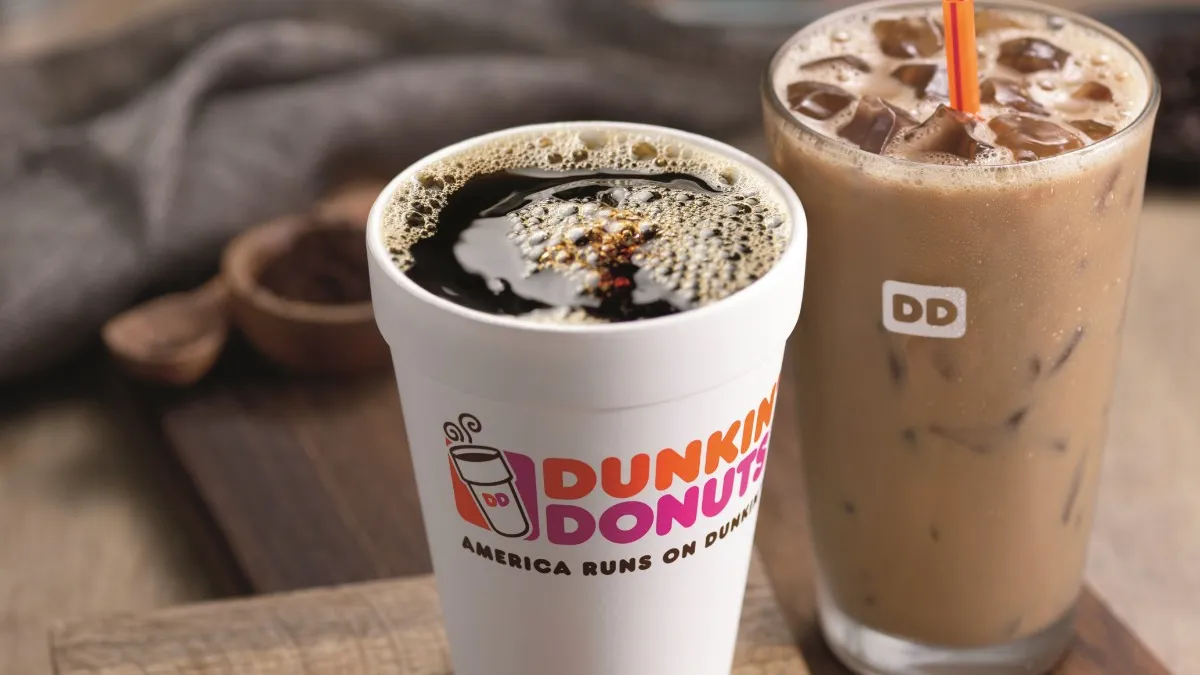Dive Brief:
- Arby's, Dunkin', Five Guys and Little Caesars will no longer include no-poach clauses in their franchise agreements in the U.S., the office of Massachusetts Attorney General Maura Healey announced this week. The settlement is the result of collaborative investigation between 14 states to expel no-poach provisions — sometimes called "no-hire," "no-solicitation" or "no-switching" agreements — from several major chains, Healey's press release said. The coalition of investigators includes attorneys general from California, Illinois, Iowa, Maryland, Massachusetts, Minnesota, New Jersey, New York, North Carolina, Oregon, Pennsylvania, Rhode Island, Vermont and Washington, D.C.
- These four chains are among eight that the attorneys general committed to investigating last July for their no-poach practices. Shortly after they announced the investigation, The New York Times reported that seven separate chains, including McDonald's and Cinnabon, agreed to end the practice in their franchises. The attorneys general are still investigating Burger King, Popeyes and Panera, Healey said.
- "No-poach agreements make it harder for fast food workers to gain promotions and earn a better living," Healey said in the release. "This settlement is a major step toward ending the use of no-poach agreements for good."
Dive Insight:
No-poach agreements are regular fixtures for many franchisees, but employees are usually unaware of the provisions, which can prevent them from seeking new, higher-paying work. Because these agreements prevent franchisees from hiring workers out from under other franchisees, employers are ultimately disadvantaged when seeking new hires, experts have said.
While Healey and others work to curb the practice at the state level, the U.S. Department of Justice (DOJ) enforces compliance broadly. The agency released guidance on the issue for human resource professionals in October 2016. About a year and a half later, it oversaw its first no-poach settlement agreement — in which it opted not to pursue criminal charges against employers involved.
Legal fallout from no-poach agreements impacts employers across industries, from fast food franchisees to automotive employers to employers in knowledge sectors. Non-franchisee employers should also be aware that ‘naked' no-poach agreements — struck between employers who do not otherwise have a legitimate business partnership — are on the DOJ's radar.
"Naked no-poach and wage-fixing agreements are per se unlawful because they eliminate competition in the same irredeemable way as agreements to fix product prices or allocate customers," the DOJ said.
To avoid class action suits or scrutiny from antitrust enforcement agencies, employers must proactively purge themselves of no-poach practices. Workers need to be able to freely offer their labor on the competitive market, and employers seeking new talent (especially in the restaurant industry) will ultimately benefit from that ecosystem.
"Our economy thrives when everyone is doing well," said California Attorney General Xavier Becerra in his own announcement. "No-poach agreements attempt to prevent competition and limit economic opportunity for hard-working Californians. The agreements announced today are an important step forward to protect our workers and our economy."















